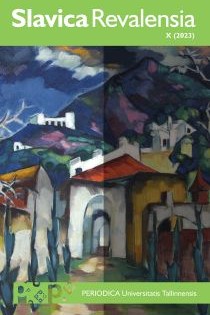Булгаковский след в Балтии 1920 – 1930-х годов [Finding Traces of Bulgakov in the Baltic States of the 1920s and 1930s]
DOI:
https://doi.org/10.22601/SR.2023.10.15Keywords:
Gabriel Superfin at 80, 20th-Century Russian Literature, Mikhail Bulgakov (1891—1940), The Days of the Turbins, The White Guard, Zoyka’s Apartment, Russian Émigré Periodicals, History of LiteratureAbstract
This article addresses the question of Mikhail Bulgakov’s reception in the Baltic states of the 1920s and 1930s. I focus my initial attention on the political aspect, and then proceed to aesthetic questions. My research is based on newspapers and magazines published in Estonia and Latvia in Russian, Estonian and German. Finding traces of Bulgakov in this way allows me to make certain conclusions about what Russian readers living in the Baltic states of the period thought about the events in the Soviet Union, and in particular events in the cultural sphere.
Downloads
Published
Issue
Section
License
Copyright (c) 2023 Slavica Revalensia

This work is licensed under a Creative Commons Attribution-ShareAlike 4.0 International License.

